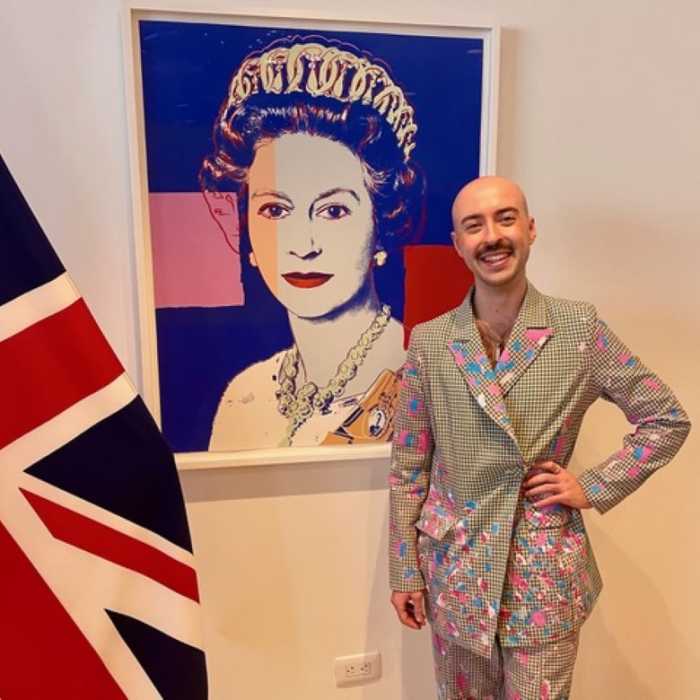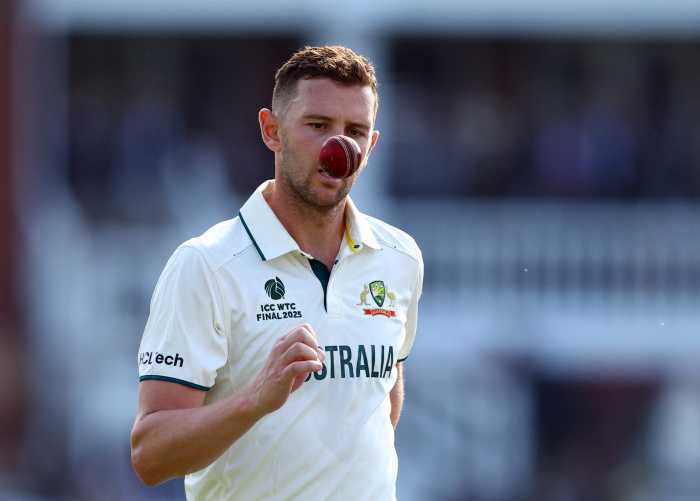Some wags predicted that “Ghost the Musical,” the West End import based on the hugely popular 1990 film, would be dead on arrival. Advance ticket sales were reported to be sluggish. Perhaps New York audiences are spooked at the prospect of a gimmicky “bereavement musical” that relies on technical effects.
The sentiment was, to borrow the film’s most famous line delivered flawlessly by Oscar-winning Whoopi Goldberg, “You in danger girl!”
Rumors of such a death are greatly exaggerated. Sure, the story of a paranormal romance between Molly Jensen and Sam Wheat features special effects that threaten to overpower nuanced emotion. But there’s no denying that the magical stagecraft — the likes of which I’ve never seen on a Broadway stage — is not only dazzling, but in some cases intensifies the passion.
Rob Howell’s elaborate set, comprised of large scrims covered with tiny lights, and Jon Driscoll’s vibrant video projections of New York cityscapes and countless other flashing images are constantly on the move (think Times Square on New Year’s Eve). They’ve also installed hidden treadmills so actors can walk or run while going nowhere.
The creators even enlisted Paul Kieve, the illusionist from “Hugo” and one of the Harry Potter films, to ensure the visual stunts are convincing, like ghost Sam passing through a solid door. And believe me, they are. Bobby Aitken’s crisp, mind-blowing sound design amplifies the effects further.
The most awesome sequences find Sam tussling with another ghost on a careening subway — even more thrilling than their counterparts in the movie.
Most theatergoers already know the plot, which is flimsy and contrived and oozing with sap. Molly, a potter, and Sam, a Wall Street banker, are crazy in love, though Sam prefers to show it instead of say it. After Sam is murdered in the street during a botched robbery, he becomes stuck in a netherworld, dead but not able to ascend to Heaven until he takes care of some unfinished business. Namely, protecting Molly from his murderer and uncovering a money-laundering scheme. He enlists the help of Oda Mae Brown, a feisty fake storefront medium in Spanish Harlem who finds she has psychic powers after all.
Since the stage version of “Ghost” blatantly trades on the movie’s appeal, it’s only fair to compare. Book writer/ co-lyricist Bruce Joel Rubin hews closely to the original screenplay, which he wrote, and many lines are happily familiar. Some departures are inspired.
Given that the show is set in “modern day,” they switched the locale from a loft in SoHo, which is no longer an edgy artist enclave, to Brooklyn. The subway ghost is not a middle-aged sad sack but an angry young punk with a Mohawk and a talent for rapping real loud. Figuring in inflation, the $4 million dollar amount being laundered was upped to $10 million.
Under the direction of Matthew Warchus, many memorable moments from the film are intact. The scene where Oda Mae pretends to be a rich client and abruptly closes out her hefty account is as ridiculously gleeful as ever. When ghost Sam urges Oda Mae to say his code word “ditto” (which means, “I love you, too”) to a skeptical Molly, our hearts melt. And the “You in danger girl” incident is just as funny as it was with Whoopi.
Other key moments from the film barely register. The revelation that Carl is not the friend he pretended to be falls flat. The famous sensual pottery wheel scene, where ghost Sam embraces Molly as they shape a clay pot, fails to live up to the original.
The tuneful score, by musical legends Dave Stewart (of the Eurythmics) and Glen Ballard, is a grab bag of pop, rock, blues, and gospel. Some of the raucous numbers, with choreography by Ashley Wallen, feel strained; I preferred the softer ballads. When Sam grabs his acoustic guitar and sings a stripped down, soulful version of “Unchained Melody,” it firmly establishes the couple’s bond, making their pain of being apart all the more believable.
Warchus boldly casts against the Demi Moore type with Caissie Levy, who has long, curly blonde hair and deftly portrays a Molly whose bravado begins to crumble along with her heart. With his ripped, model-perfect body, Richard Fleeshman skillfully evokes Sam’s resolve to protect his lost love, virtually erasing any memory of Patrick what’s-his-name. Their chemistry is truly otherworldly, and when they sing it’s obvious why both actors were brought over with the London production.
Newcomer Da’Vine Joy Randolph doesn’t dare try to mimic Whoopi, adding a deeper, bolder dimension to the Oda Mae character. The weak link is Bryce Pinkham as Carl, Sam’s jealous colleague and supposed best bud. With his Christopher Walken shock of hair and bulging eyes, he appears menacing from the start and overacts when his greedy scheme blows up in his face. I missed Tony Goldwyn’s more subtle turn in the movie.
Not surprisingly, all that ingenious technical wizardry comes with a price. At times it was overkill and felt like an assault. Do we really need to see images of hands caressing flesh during a tender ballad? Warchus should trust the audience to paint those images in their own minds.
On the night I attended, a mechanical malfunction stopped the show cold in the middle of a pivotal Act II number titled, ironically, “Nothing Stops Another Day.” For about 25 minutes, audience members were suspended in a creepy, semi-dark netherworld of their own.
GHOST THE MUSICAL| Lunt-Fontanne Theatre | 205 W. 46th St. |Mon., Wed.-Sat. at 8 p.m., Tue. at 7 p.m.; Wed., Sat. at 2 p.m. | $57-$137 | ticketmaster.com


































